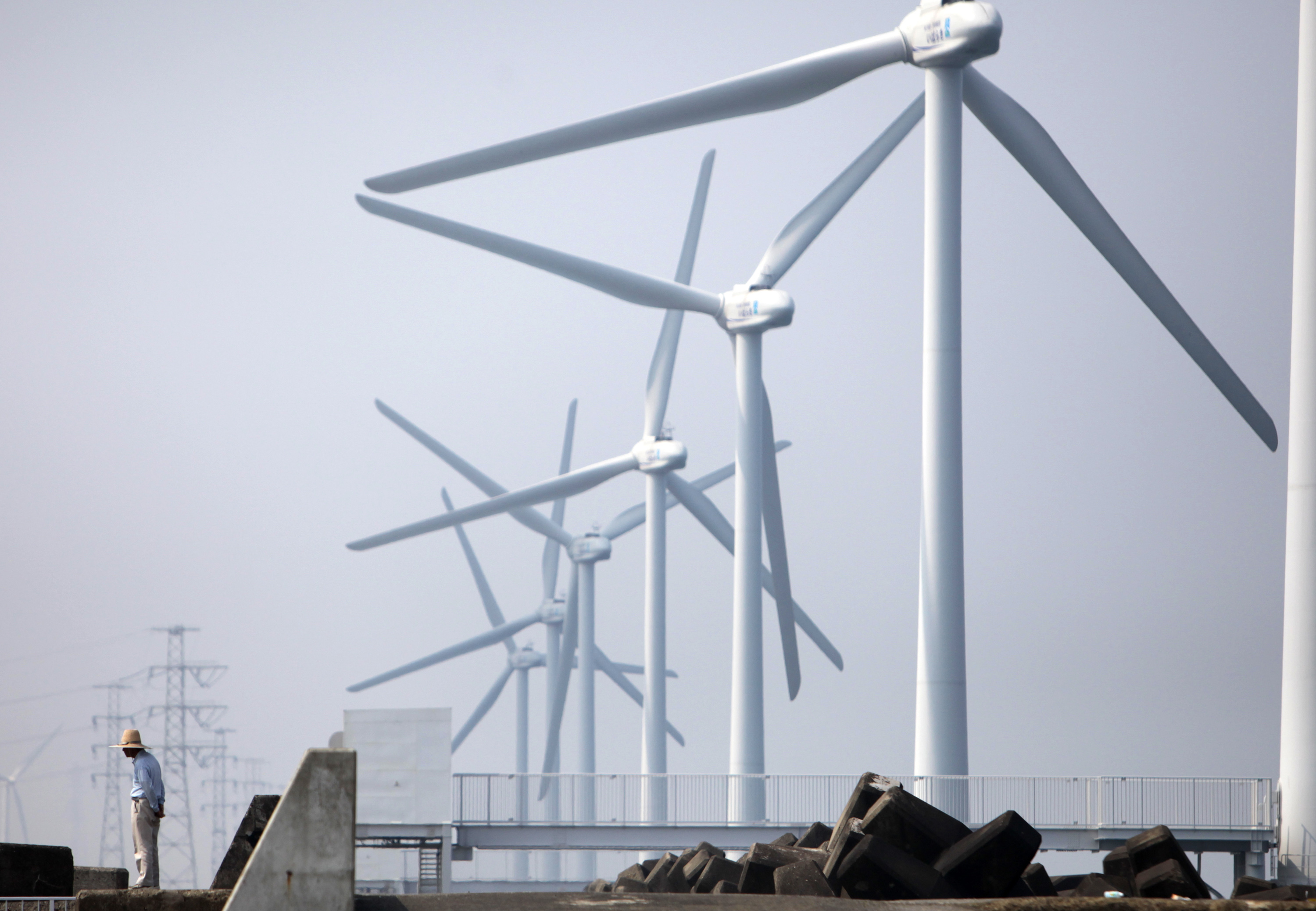Recent revisions to the feed-in tariff system have been welcomed by utilities as much-needed government intervention that will ensure safe and stable supply of all forms of electricity by helping to prevent renewable energy from overloading the grid and causing blackouts.
But critics say the move by an agency under the Ministry of Economy, Trade, and Industry does little to solve the basic electricity transmission issues, and hint that the real purpose of the changes is to limit the amount of renewable energy generated so there is enough grid capacity to handle nuclear power once the reactors are turned back on.
The controversy began in September, when Kyushu Electric Power Co. announced it would no longer sign contracts with most companies that were supplying renewable energy. The reason, the utility said, was that its transmission network would be overloaded if it actually purchased electricity from all of the renewable energy suppliers it had signed contracts with.


















With your current subscription plan you can comment on stories. However, before writing your first comment, please create a display name in the Profile section of your subscriber account page.